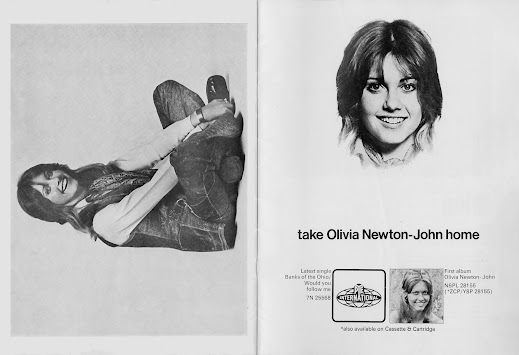I have to admit I was totally surprised when I received a call last month from colleague, Stephen Munns, who has for some years been servicing the Parlophone label with a number of very successful compilation album ideas and product, most notably the Cilla Black catalogue, to alert me to a new Cliff Richard compilation album that Warners were releasing on their Parlophone label in November. Stephen had quite unexpectedly been asked to write the liner notes, but knowing what the crew at Parlophone didn't, that I had spent 20-something years working on Cliff's catalogue when Warners were EMI, he turned down the gig, and suggested they ask me to do the liners as I was, in Stephen's words, the go to for Cliff guy. Within a couple of days, Warners had sent me an email outlining the project, sent the track listing, and asked if I could work up a liner note of about 500 words that could discuss the reflective nature of the songs in Cliff's career, and as this compilation was focusing more on Cliff's songs of love and reflection, they didn't want a straight biog because it wasn't that sort of best of album, but they did want something that bought a fresh insight to the tracks featured on the album. I immediately knew that what they were looking for was not the type of liner note I did, or had done on any of the 50 or so Cliff catalogue albums, box sets and compilations I had worked on in the EMI days, so it was pretty clear to me that I would have to pass on it, or find someone who could do what they were after. And as luck would have it, I knew someone who I thought would be just right for it!
Vic Rust had written and published a book on Cliff's recordings, writing about every song in the same reflective tone as Warners were now seeking for the liner note of the new album. Vic and his book were already well known to Cliff and his management team, and was involved, along with myself, in coming up with the 100th album figure for The Fabulous Rock 'n' Roll Songbook in 2013, and on top of everything else, his book had been highly praised by Cliff himself, so if I could get Vic on board the project, it would be the perfect solution. In the absence of not doing the liner note myself, it would provide Cliff and Warners with the kind of liner note they were after, keep me in the frame of things for any future ideas, and make Stephen's decision to pass the project over to me all worthwhile. I briefed Vic about the project, sent him the track list and told him if he wanted to have a go at it, purely on spec, I would submit it to Warners on his behalf for Cliff and his team to approve. Vic agreed, and less than a week later, he told me Cliff had chosen his liner note over and above another liner that had been submitted by a music journalist, and that it would indeed be used on the album, so as a taster of what to expect in the CD booklet, I am thrilled to share an exclusive first look excerpt from the opening paragraph of Vic's fabulous liner note...
To
call Cliff Richard merely a singer misses the point: The techniques,
the versatility, the ear for strong melody and harmony all serve to
highlight the impact of his huge back catalogue. In an extraordinary
career of nearly 60 years, Cliff has recorded almost 1,300 songs,
making each one sound unique, contemporary, poignant and essentially
personal. The
important goal for any singer is for the audience, the individual, to
take something specific away from every one of their performances, be
it simple enjoyment, strength of belief, a powerful message to
ponder, or simply a hummable tune delivered to the best of their
capabilities. Throughout his long career, Cliff has excelled in
making this seem inordinately easy, which is one of the reasons that
his fan-base has remained so resolutely strong. Of
those hundreds of songs, most have understandably been about love
because that is what the general pop genre demands, but there have
also been many that talk about faith, and some that are quite pointed
environmental protest songs. The key to creating a successful
performance is to make the songs accessible to everybody at some
level, regardless of their personal beliefs, and this is a skill that
is often unrecognised. It is achieved by focusing on how the song is
put together and then evolved to become the final polished product,
so that every listener can take something that is important to them
away from it.
Cliff Richard Stronger Thru The Years is released on 10 November.




